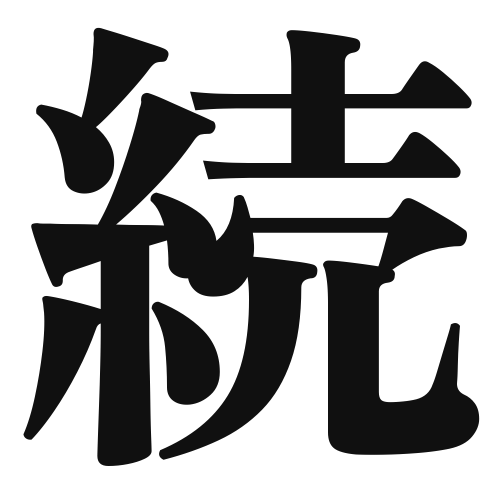1. Overview of Meaning
The kanji “続” (zoku) means “to continue” or “to follow.” It conveys the idea of something that is ongoing or extending from one point to another.
2. Formation and Radical
Formation of the Kanji: The kanji “続” is a compound character, which means it is formed by combining two elements. The left part, “辶” (which represents movement), indicates the action of following or continuing, while the right part “即” relates to the idea of immediacy or directness.
Radical: The radical of “続” is “辶,” which is associated with movement and travel.
3. Examples of Usage
Common Words and Phrases: Some frequently used words that include “続” are:
- 続ける (つづける, tsuzukeru) – to continue
- 続く (つづく, tsuzuku) – to be continued
- 続編 (ぞくへん, zoku-hen) – sequel
Example Sentences in Daily Conversation:
- この物語はまだ続いています。(このものがたりはまだつづいています。) – This story is still continuing.
- 彼は毎日運動を続けています。(かれはまいにちうんどうをつづけています。) – He continues to exercise every day.
4. Synonyms and Antonyms
Similar Kanji: A similar kanji is “延” (えん, en), which also means “to extend” but is more focused on the idea of lengthening time or space rather than the act of continuing.
Opposite Kanji: The opposite kanji is “断” (だん, dan), which means “to cut off” or “to stop,” indicating the cessation of something rather than its continuation.
5. Cultural and Historical Background
Relation to Japanese Culture: The concept of continuity is significant in Japanese culture, often reflected in traditions, arts, and practices that emphasize the importance of ongoing relationships and processes.
Proverbs and Idioms: An example of a proverb that relates to “続” is “継続は力なり” (けいぞくはちからなり, keizoku wa chikara nari), which translates to “Continuance is power,” highlighting the value of persistence and ongoing effort.
